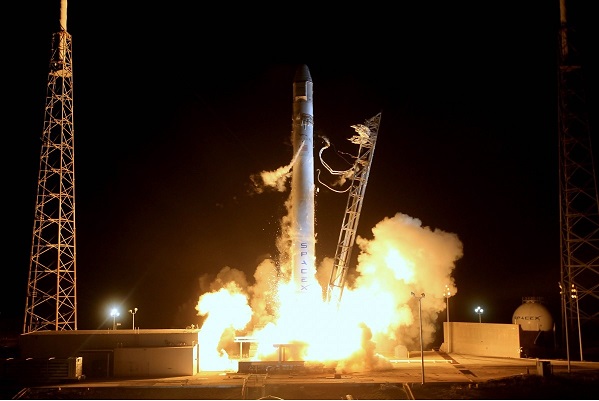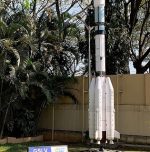India launches XPoSAT to unravel Black Hole Mysteries

In a historic move on New Year’s Day, the Indian Space Research Organisation (ISRO) successfully launched the XPoSAT (X-ray Polarimeter Satellite) on its 60th Polar Satellite Launch Vehicle (PSLV) flight.
At 9:32 am, ISRO announced the mission’s textbook launch, placing the satellite precisely into its intended orbit of 650 km with a 6-degree inclination.
Astrophysicist Dipankar Bhattacharya hailed the achievement as a significant step forward, stating that the expected orbit had been achieved, setting the stage for planned scientific endeavours.
The XPoSAT mission now positions India as the second country, after the US, to possess an ‘observatory’ dedicated to studying black holes.
The 260-tonne PSLV rocket carries an advanced astronomy observatory designed to investigate black holes and neutron stars using X-ray photons and polarization.
The satellite features two essential payloads: POLIX (Polarimeter Instrument in X-rays) and XSPECT (X-ray Spectroscopy and Timing).
XPoSAT’s primary objective is to measure the polarization of X-rays in the energy band of 8-30keV from approximately 50 potential cosmic sources through Thomson Scattering with the POLIX payload.
Additionally, the satellite will conduct long-term spectral and temporal studies of cosmic X-ray sources, providing valuable insights into ultra-extreme environments in space.
Stars, upon exhausting their fuel, collapse under gravity, forming black holes or neutron stars.
These celestial entities exhibit the highest gravitational force and density in the universe, respectively.
XPoSAT’s mission aims to unravel the mysteries surrounding these ultra-extreme environments.
The ambitious project, costing approximately ₹250 crore (around $30 million), positions India as a key player in space exploration.
Notably, the XPoSAT is expected to outlast its NASA counterpart, the IXPE, by more than three years, with a projected lifespan exceeding five years compared to the latter’s two-year mission duration.
With XPoSAT now orbiting Earth, India enters uncharted territory, poised to unlock unprecedented insights into black holes and neutron stars, advancing our grasp of the cosmic tapestry.
Image from Pxhere (Free for commercial use / CC0 Public Domain)
Image Reference: https://pxhere.com/en/photo/893779










Leave a Reply